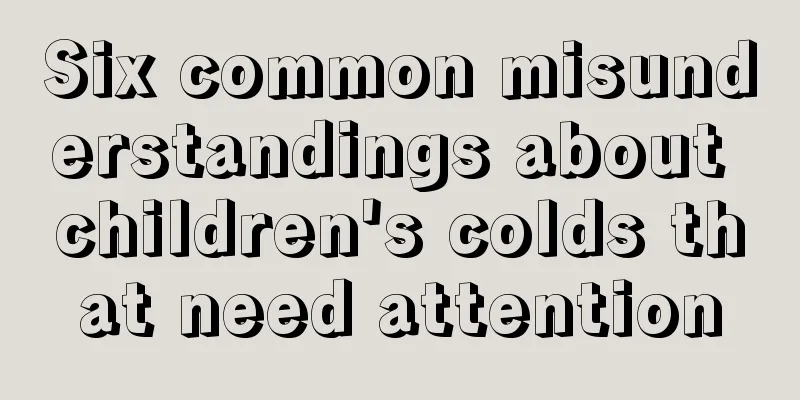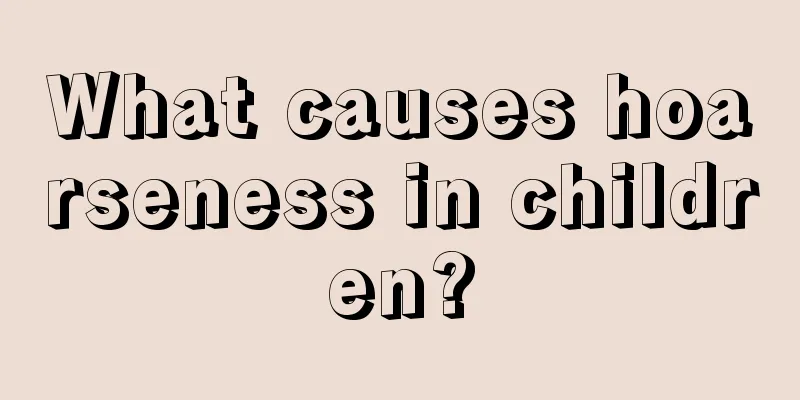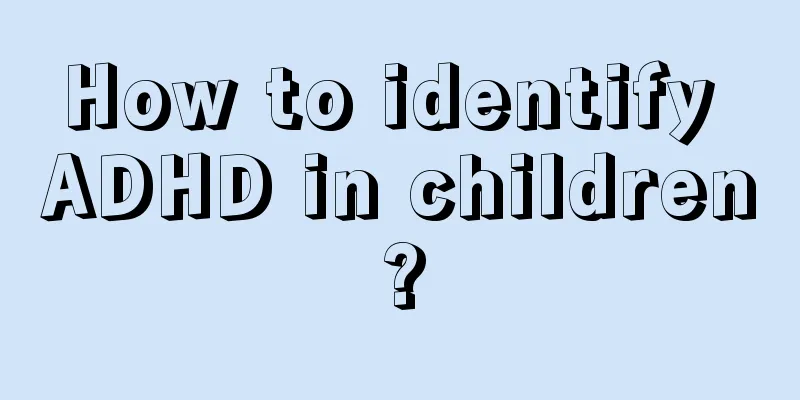Why do children often have nosebleeds?

|
As we all know, nosebleeds occur at all ages and can happen to anyone, young or old, male or female. If a child has a nosebleed, as a parent, we will feel very nervous. We don’t let the child eat anything randomly or apply anything randomly on him/her, so how could this happen? Next, the editor will tell you why children often have nosebleeds? I hope this can help everyone. Children's nosebleeds are usually caused by injuries to the front part of the nasal septum. This area has several blood vessels that intersect and are arteries, so the amount of bleeding is large. Children who are prone to nosebleeds can be roughly divided into the following categories: 1. Children with colds - Because colds can reduce the resistance of the nasal mucosa, and the symptoms of colds (nasal congestion, runny nose, nasal pus, etc.) can cause children to do some actions that directly hurt the nasal mucosa (such as blowing their noses hard, picking their noses, etc.), which can easily lead to nosebleeds. 2. Children with nasal allergies - due to itchy, runny nose, and nasal congestion, they often pick their noses, which often causes the nasal mucosa to be injured and bleed. 3. Children who have the habit of picking their noses with their fingers - Frequent picking of the nose causes repeated injuries to the nose and the nasal vestibule, which then forms scabs. When the nose is stained with mucus, the children will pick their noses uncontrollably, and this vicious cycle will cause ulcers and bleeding at the nose entrance and vestibule over time. 4. Children with blood diseases - Although these children have no nose injuries, they often have nosebleeds. The flow rate is usually slow, but the frequency is very frequent. This type of nosebleed is often caused by blood diseases. If you encounter this situation, you must go to the hospital immediately for a blood test, just in case. 5. Nosebleeds may be caused by dry air and dry, fragile nasal mucosa, which is prone to bleeding. You can go to the hospital to get some paraffin oil or peppermint oil to apply to the nasal cavity, or you can ask a doctor to check and confirm the diagnosis and symptomatic treatment to avoid frequent bleeding. Parents should not panic when seeing heavy bleeding. It is best to immediately use the thumb and middle finger to press the nostrils on both sides at the same time to compress the bleeding area and stop the bleeding. Release your hand after about five minutes to see if the bleeding has stopped. If bleeding continues, repeat the pressure on the nostrils for another five to ten minutes. In most cases, the bleeding can stop. If not, you must immediately seek emergency treatment from an ENT doctor. The above are the reasons why children often have nosebleeds. Once you find that your child has nosebleeds, you don’t have to be so nervous. You can treat it according to ancient methods, or take your child to the hospital for a comprehensive examination, so you can rest assured. We should pay more attention to this issue in our daily life and give it a certain degree of importance. |
<<: Physical therapy for fever in 10-month-old baby
>>: Symptoms of teething in babies
Recommend
What is the definition and causes of growing pains in children?
Many parents and friends will encounter this prob...
Three dietary recipes to help children grow taller
I often see several full-time mothers posting pho...
Children's facial features are inherited
Facial features are something that people attach ...
What to do if your child is malnourished
If a parent in a big city says that his child is ...
Pay attention to the nutritional balance of the diet for children in the third year of junior high school
Children in the third year of junior high school ...
What are the medicines for treating fever and cold in children?
Nowadays, children are very important to every fa...
Symptoms of normal phlegm accumulation in babies
If the baby has phlegm, he will make a "hiss...
ADHD Intelligence
Children with ADHD have relatively low intelligen...
Can babies with inflammation take Austar?
When the baby has inflammation, you must be caref...
What to do if your baby has stomachache
Everyone knows that there will be many things tha...
Irritating cough in children
Children's irritating cough is a type of alle...
What are the treatments for respiratory infections in children?
Since children's resistance is often weak, ma...
What to do if baby's toes peel
After ten months of pregnancy, the expectant pare...
What to do if a 7-year-old child has a hunchback?
In the eyes of parents, it is very common for chi...
When will the baby laugh?
A baby's smile is the joy of the whole family...









